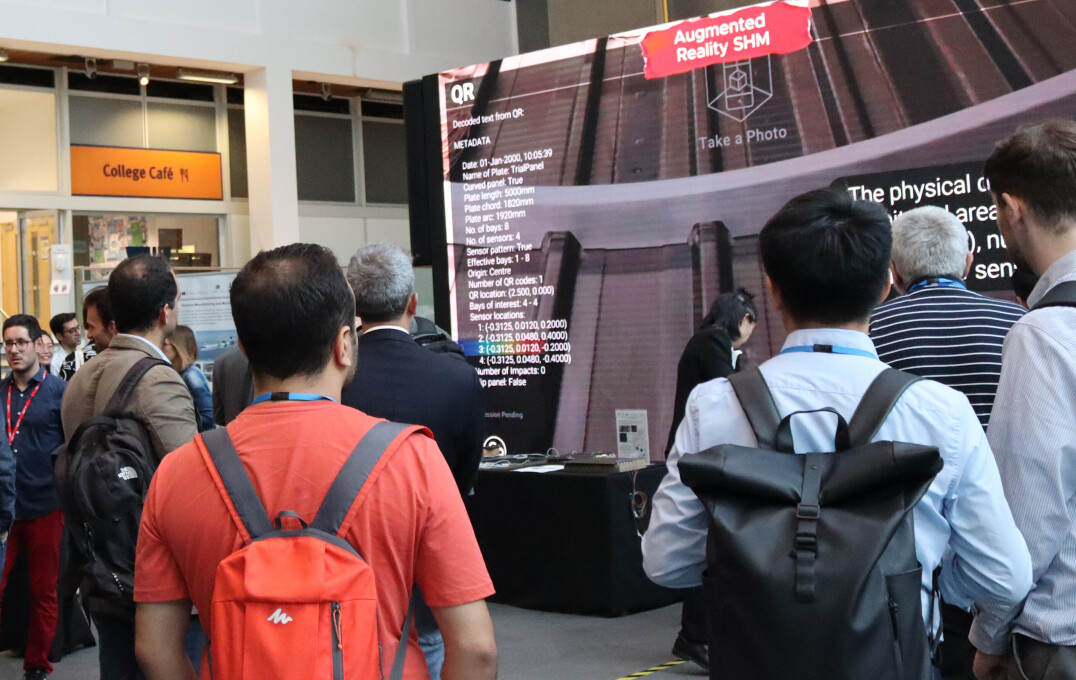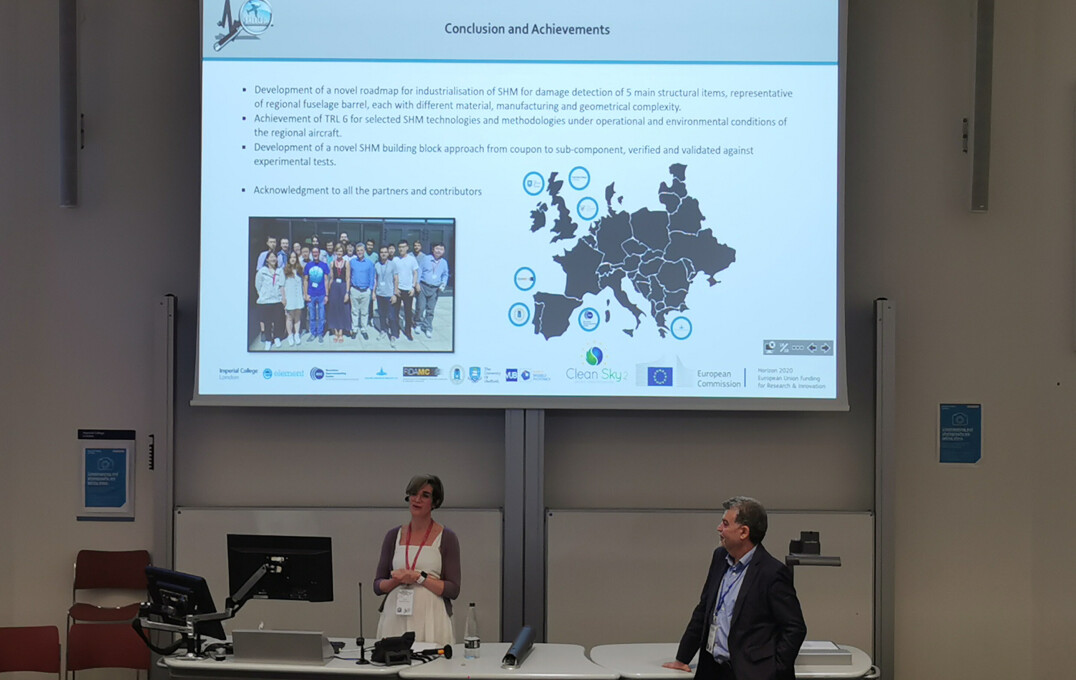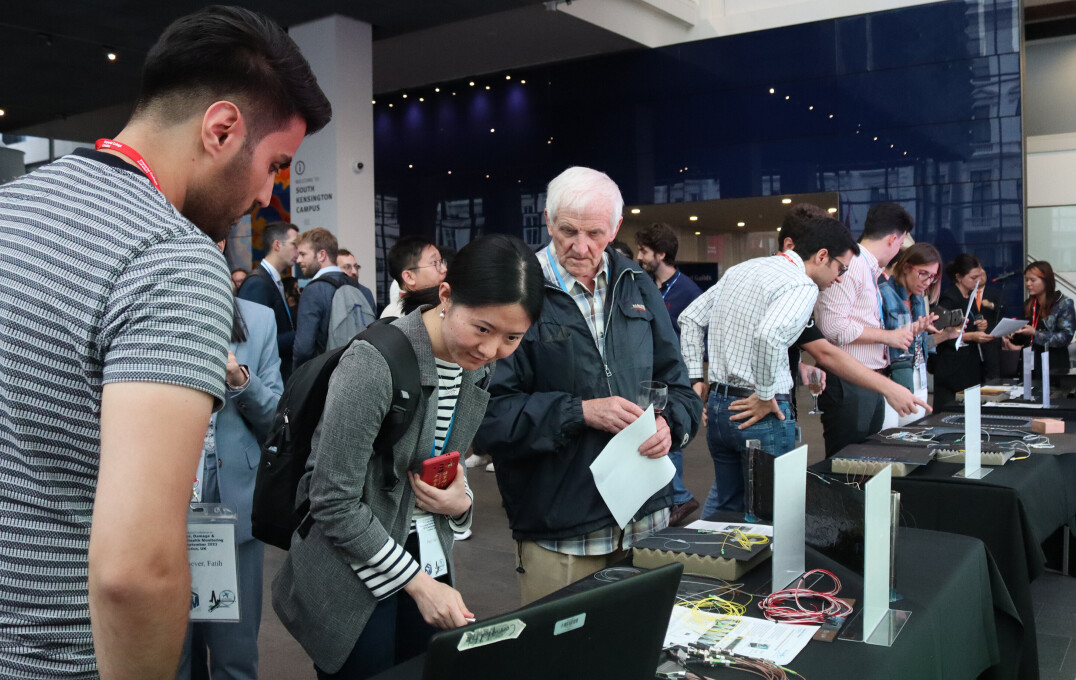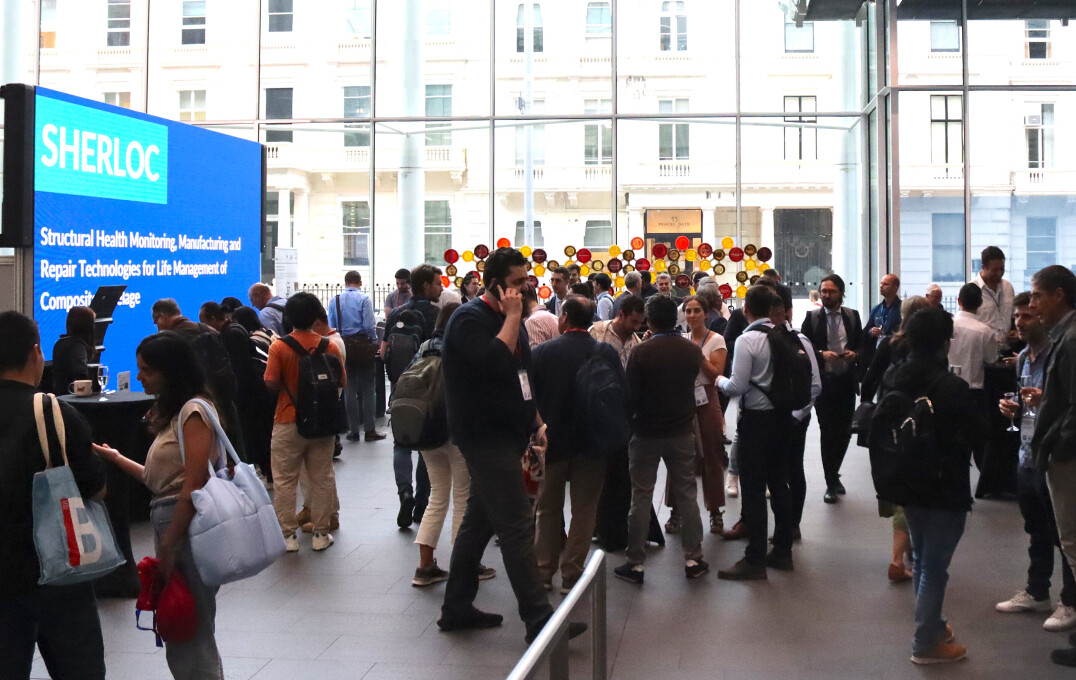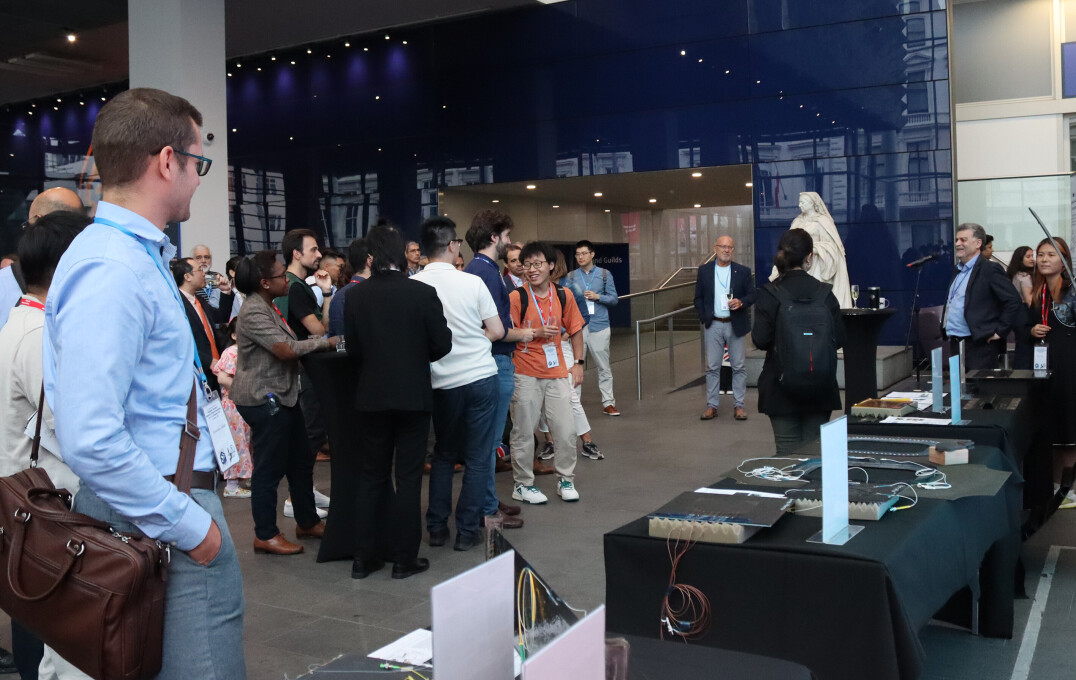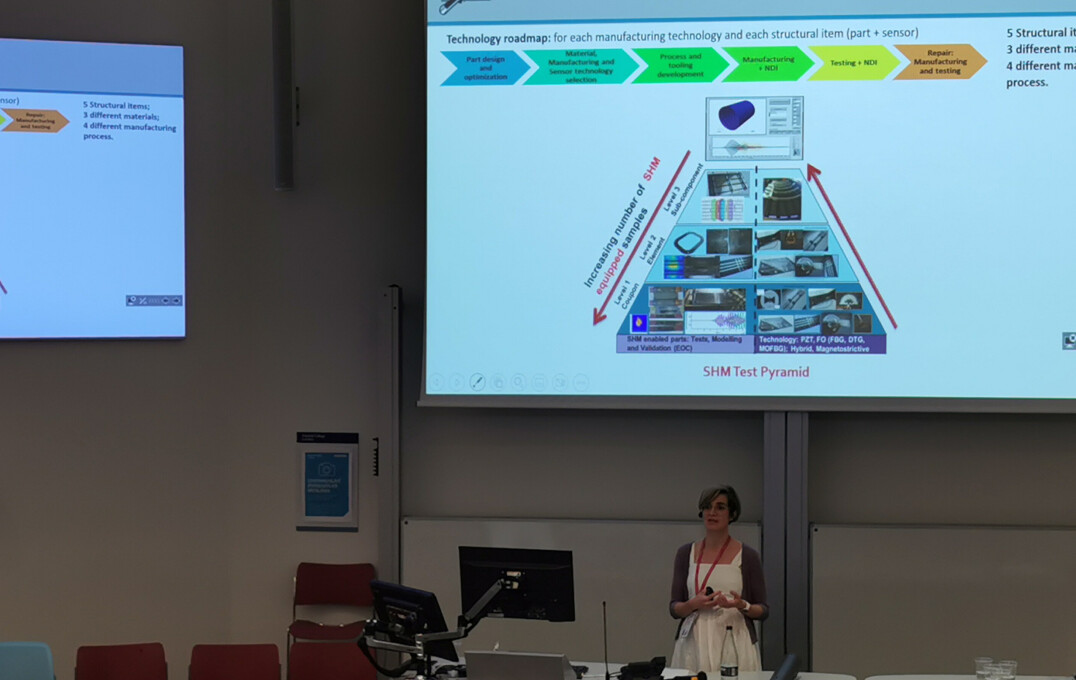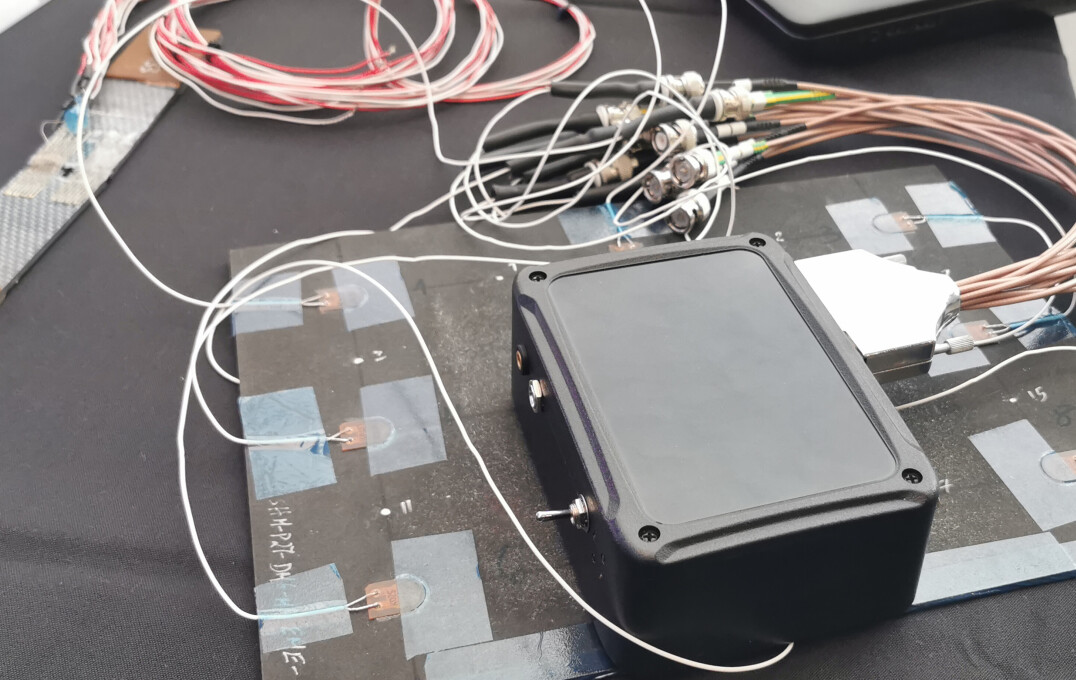Imperial hosts workshop to highlight EU research
by Ayesha Khan
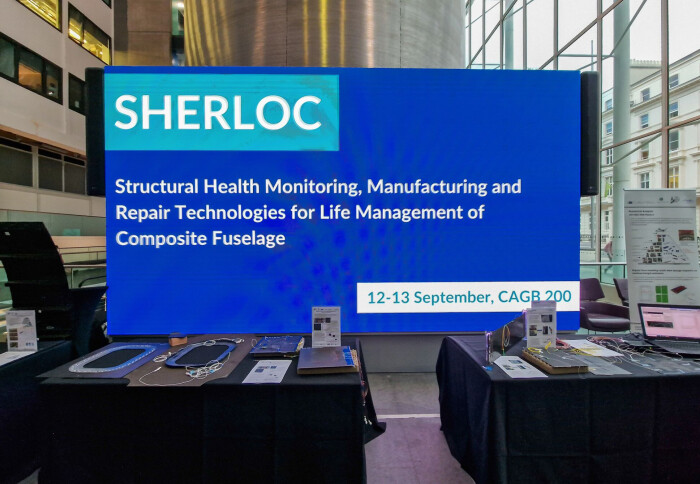
Aeronautics academics hosted expert panels and showcased research at the SHERLOC Realisation workshop.
The Structural Integrity and Health Monitoring Group at Imperial College London hosted the Structural HEalth monitoring, manufacturing and Repair technologies for Life management Of Composite fuselage (SHERLOC) workshop on 12 and 13 September.
The two-day event celebrated the achievements of a seven-year Clean Sky 2 core partnership, coordinated by Imperial Professors Ferri Aliabadi and Zahra Sharif Khodaei.
The workshop was attended by 130 participants from industry and academia. The event showcased 18 research papers alongside a presentation by the SHERLOC research team and 15 technical presentations from other experts in the field.
The workshop also hosted five talks highlighting SHERLOC’s main achievements spanning:
- Structural Health Monitoring, manufacturing and repair technologies for life management of composite fuselage; SHERLOC Cleansky 2 core partnership overview; Ferri Aliabadi
- Novel composite manufacturing technologies (FIDAMC, Hellenic Aerospace Industry)
- Mechanical testing of coupons, elements and large scale subcomponents representative of a composite fuselage barrel (element, Seville, Imperial College London)
- Virtual high performance numerical platform for virtual testing of composite structure (BSC, Imperial College London)
- Structural health monitoring methodologies and technologies for smart fuselage barrel following a novel building block strategy (Imperial College London, VUB, Universidad Politécnica de Madrid, University of Sheffield)
The talks were followed by a panel discussions and demonstrations of the main technologies developed during the project, which included smart repair patch, diagnostic film, multi-functional sensors and miniaturised data acquisition and processing units.
View the SHERLOC workshop brochure for insights into project objectives, main achievements and technologies.
SHERLOC
The SHERLOC project began in 2015 and is majority EU Horizon funded, with a total budget of €9.6M. The project collaborates with Clean Sky 2 programme and is coordinated by Imperial experts Professor Ferri Aliabadi and Professor Zahra Sharif Khodaei.
The project aims to combine advanced Structural Health Monitoring and smart repair technologies with design philosophy to develop new maintenance concepts that will allow for direct reduction of operative costs without lowering the operational safety of a composite fuselage.
Article text (excluding photos or graphics) © Imperial College London.
Photos and graphics subject to third party copyright used with permission or © Imperial College London.
Reporter
Ayesha Khan
Department of Aeronautics
